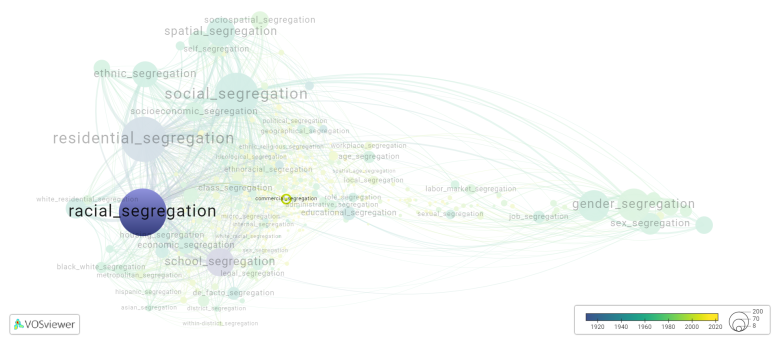Commercial segregation
Date and country of first publication[1]
2011
United States
Definition
Commercial segregation is the practice of separating businesses and commercial establishments based on race, ethnicity, or socioeconomic status. This practice can result in certain communities having limited access to certain businesses or services based on their demographic characteristics. Commercial segregation can be driven by various factors, including discriminatory practices, economic disparities, and historical patterns of development. It can contribute to inequality and reinforce social divisions within a community. Efforts to address commercial segregation often involve initiatives to promote equal access to commercial opportunities and foster inclusive and diverse business environments.
See also
Related segregation forms
Commercial segregation is frequently discussed in the literature with the following segregation forms:
This visualization is based on the study The Multidisciplinary Landscape of Segregation Research.
For the complete network of interrelated segregation forms, please refer to:
References
Notes
- ↑ Date and country of first publication as informed by the Scopus database (December 2023).
Commercial segregation appears in the following literature
Semmes C.E. (2011). Charitable collaborations in Bronzeville, 1928 1944: The Chicago defender and the regal theater. Journal of Urban History, 37(6), 975-991. https://doi.org/10.1177/0096144211418434

